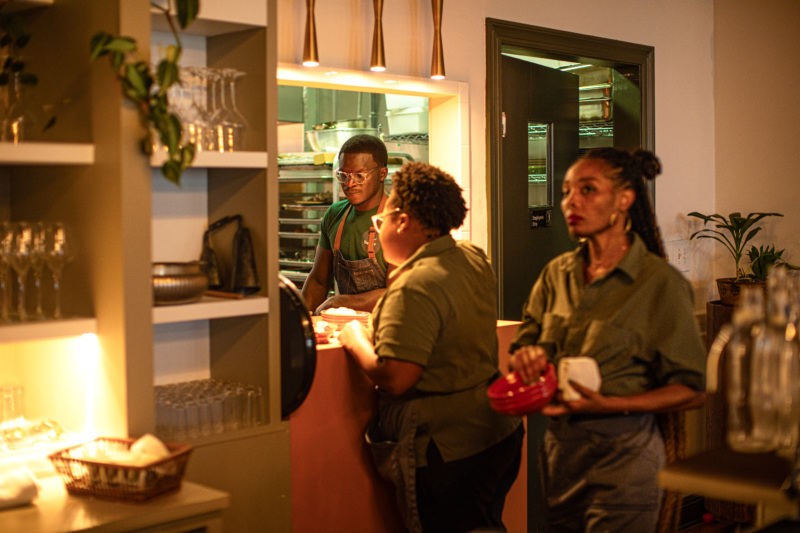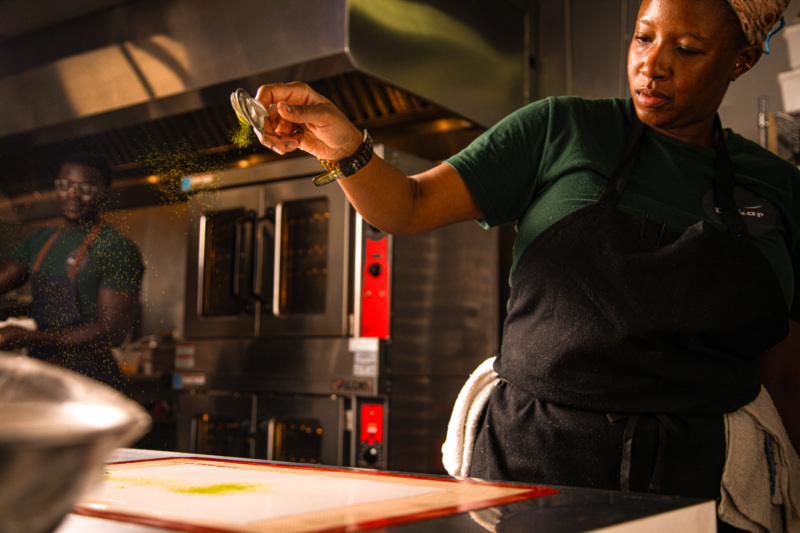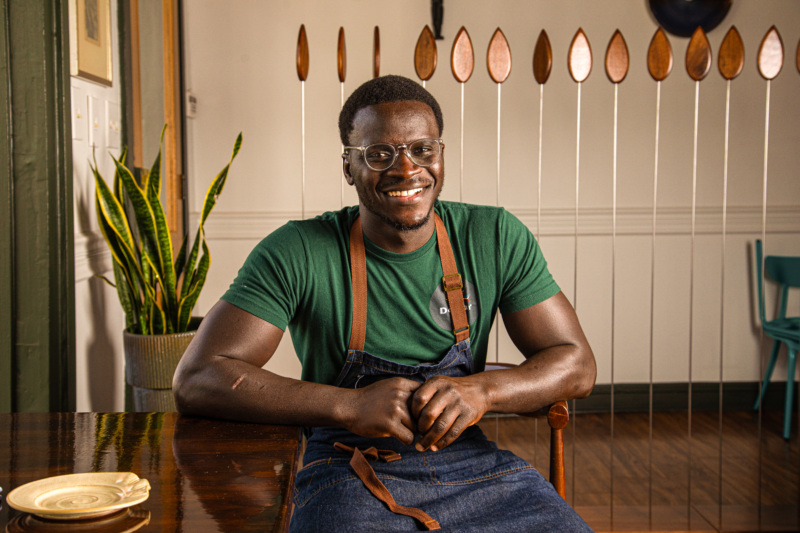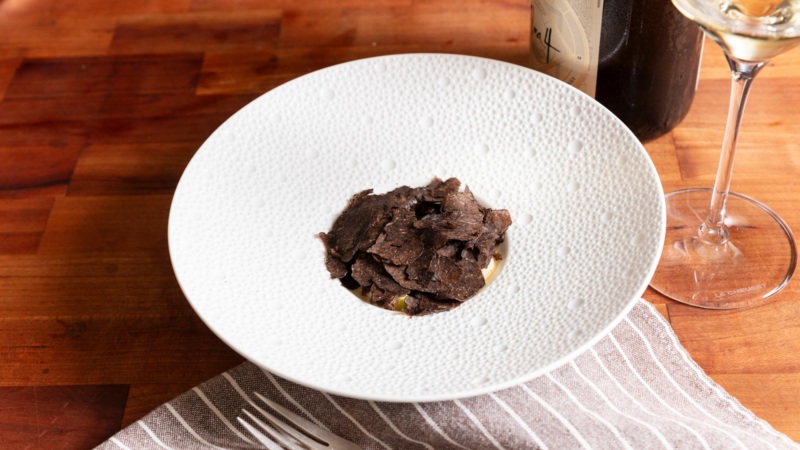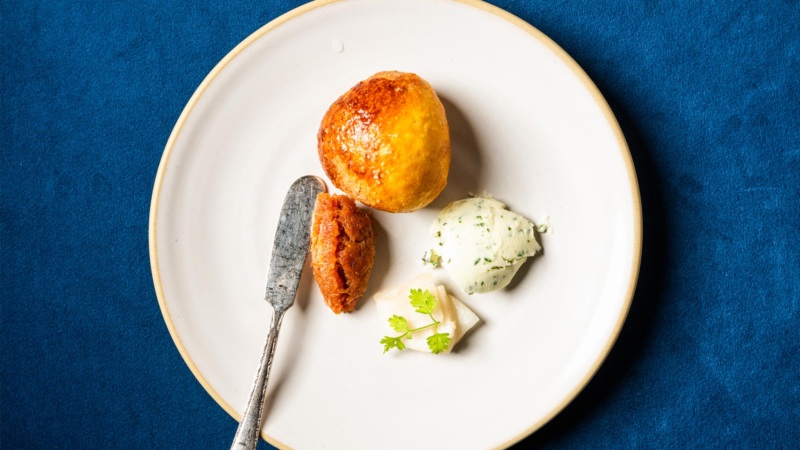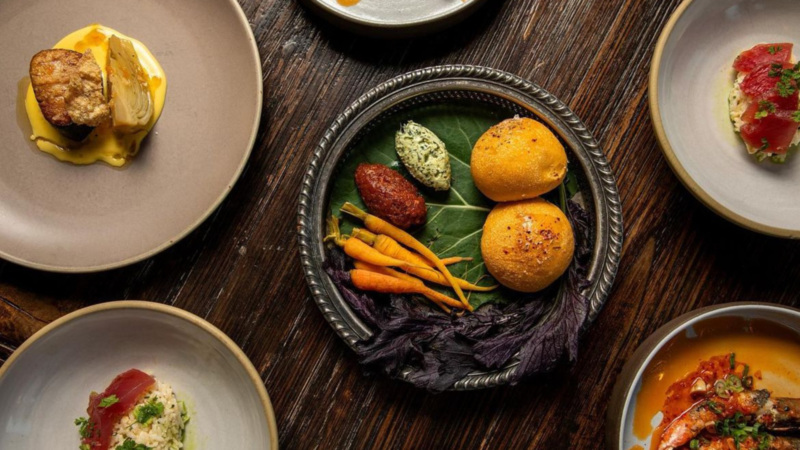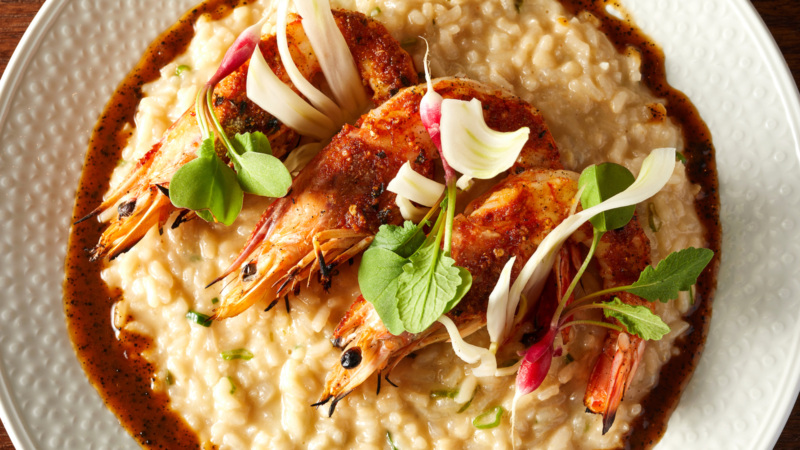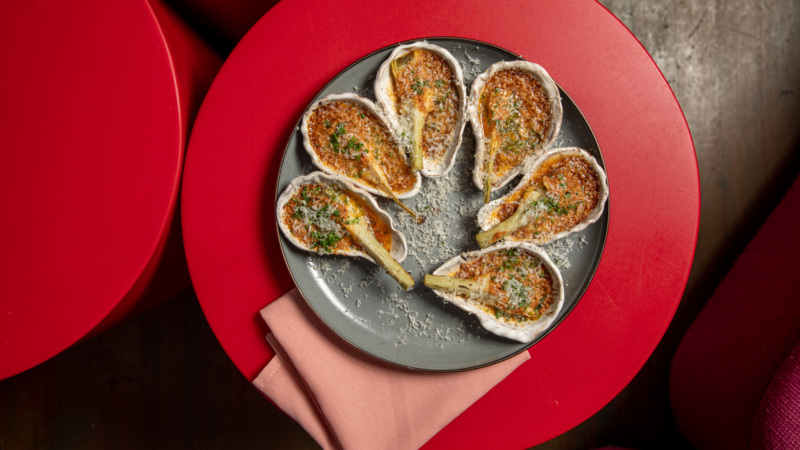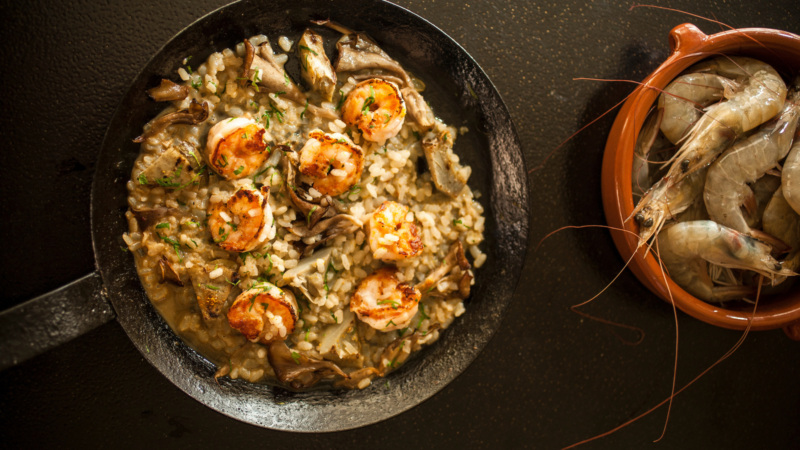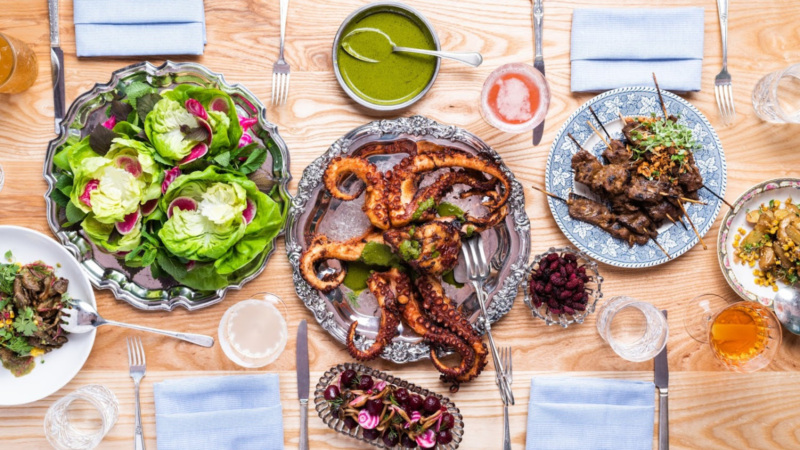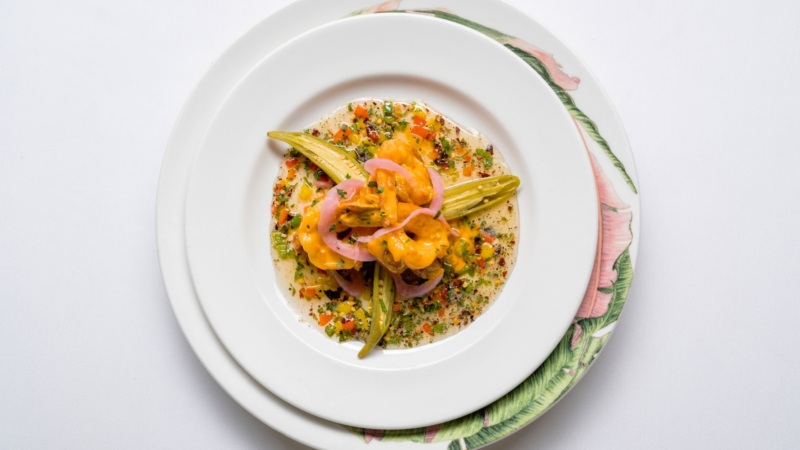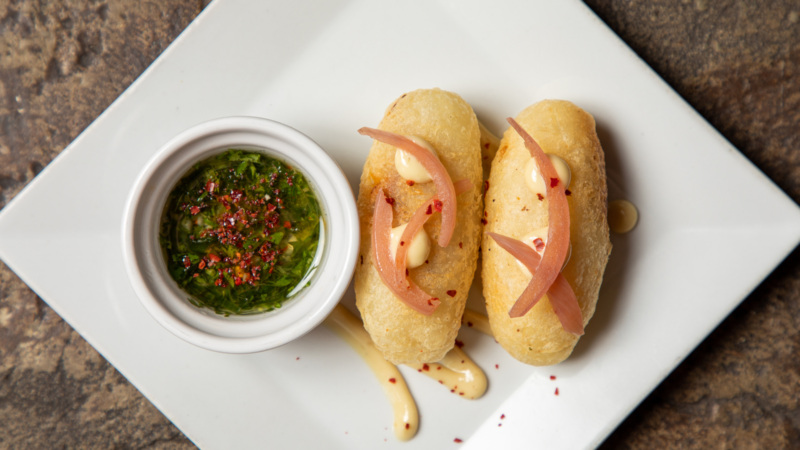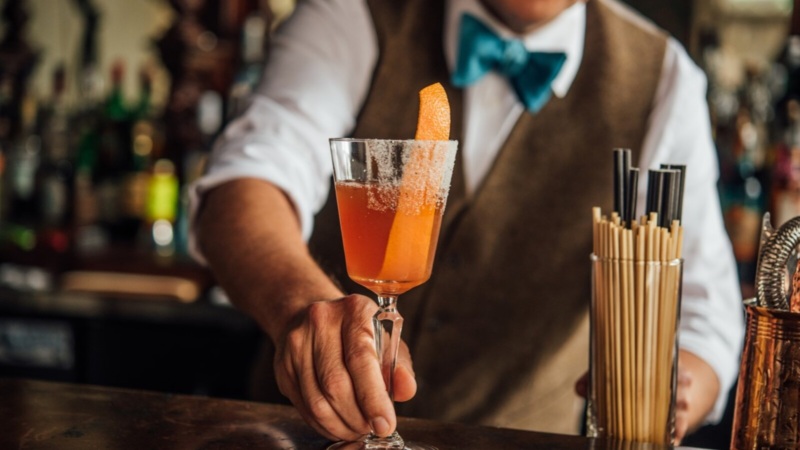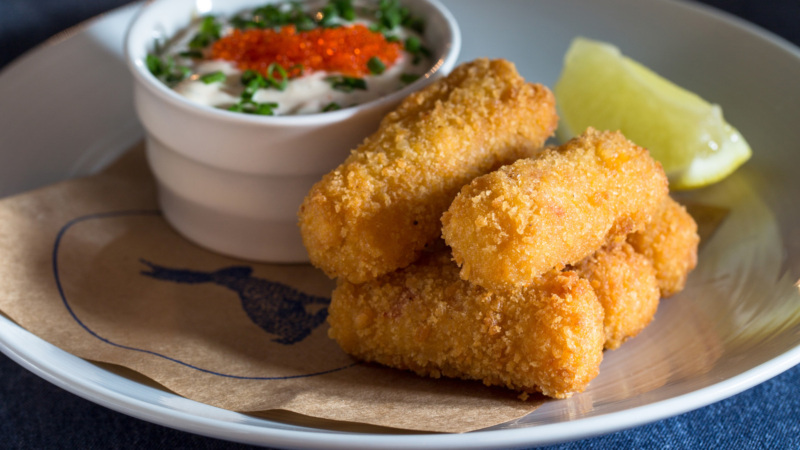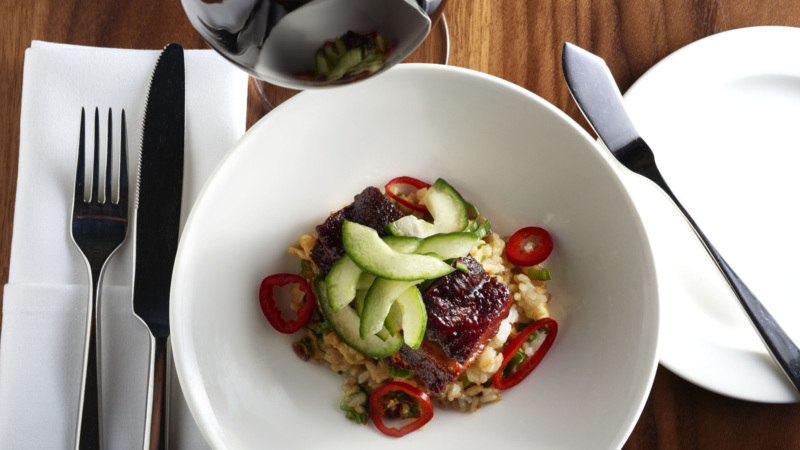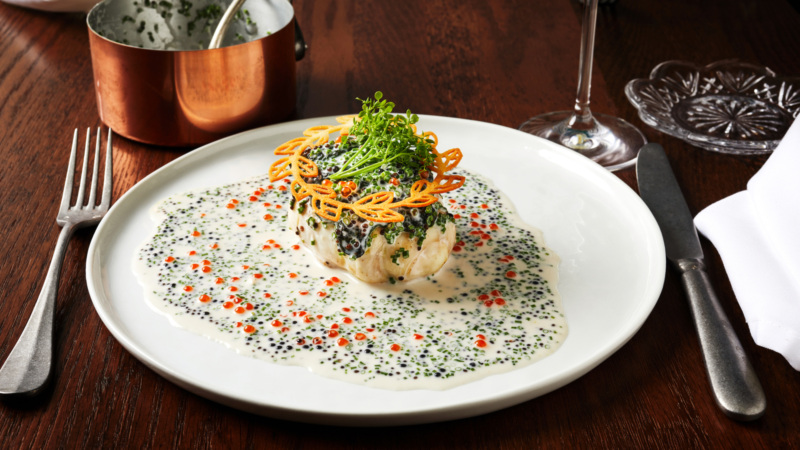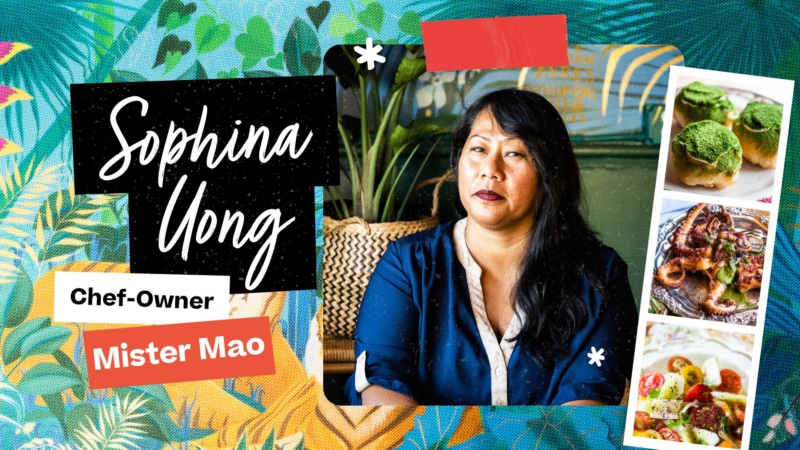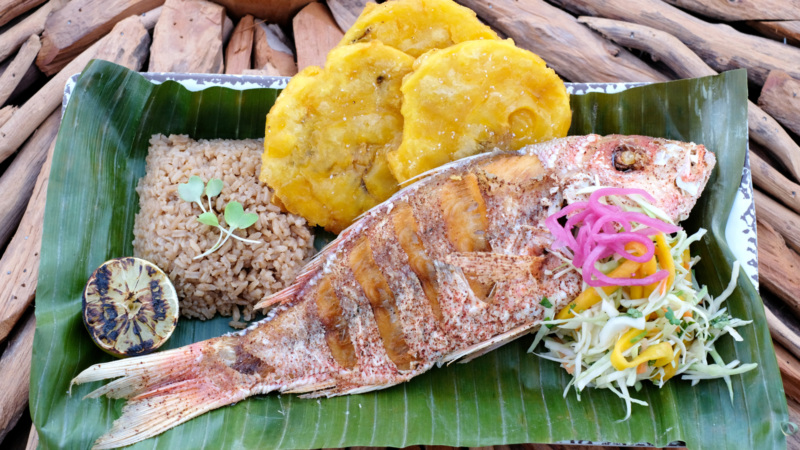
Stephen Satterfield's Corner Table New Orleans
At Dakar NOLA, New Orleans Cooking Finds a New Path to Its Roots
The American Express® Gold Card and Resy have teamed up with Stephen Satterfield, award-winning host of “High on the Hog,” to bring you Corner Table: a series of exclusive interviews with top chefs and restaurateurs from across the U.S. Discover the personal stories and inspirations of these culinary masters and see how their food is reinventing American dining culture.
Stephen Satterfield is an award-winning journalist, author, founder of Whetstone Media and Hone Talent Agency, and host of “High on the Hog” on Netflix. His book “Black Terroir” is due out in fall 2024.
If the story of New Orleans can truly be told, it could only be done with a chorus of voices. This is what makes the city so enigmatic: its roots spread in a thousand directions, empowering us to see in it whatever we wish. This is indisputably true about the Crescent City’s food culture. Its lineage comes from no one place in particular; many can lay claim to what the city has become.
That has rarely been more true than with the arrival of Dakar NOLA, which has a story to tell about the broader history of West Africa — particularly chef Serigne Mbaye’s ancestral Senegal. Along with managing partner and co-owner Effie Richardson, Mbaye has created a style of fine dining that defies expectations and redefines the genre.
Dakar NOLA is situated on a lively oak-scattered stretch of Magazine Street as it stretches through the East Riverside neighborhood — in a compact and kingly building with long windows, cream-and-olive interiors, a salon wall filled with African art, and generous, oval community tables for a total seating of 30 guests. There are no artificial airs of elegance, no inflated sense of ego that often accompanies prestige. Dakar emanates the warm, welcoming spirit of Mbaye and Richardson’s West African heritage, inviting everyone to their celebration of the culture and history of New Orleans.
“I love the family bond that we have here in New Orleans,” Mbaye tells me. “I think this city has truly adopted me like a lost relative, and I’m very grateful for that. People really care for one another, and the city is so small, yet it’s so loud in the sense of the name — everyone knows New Orleans.”
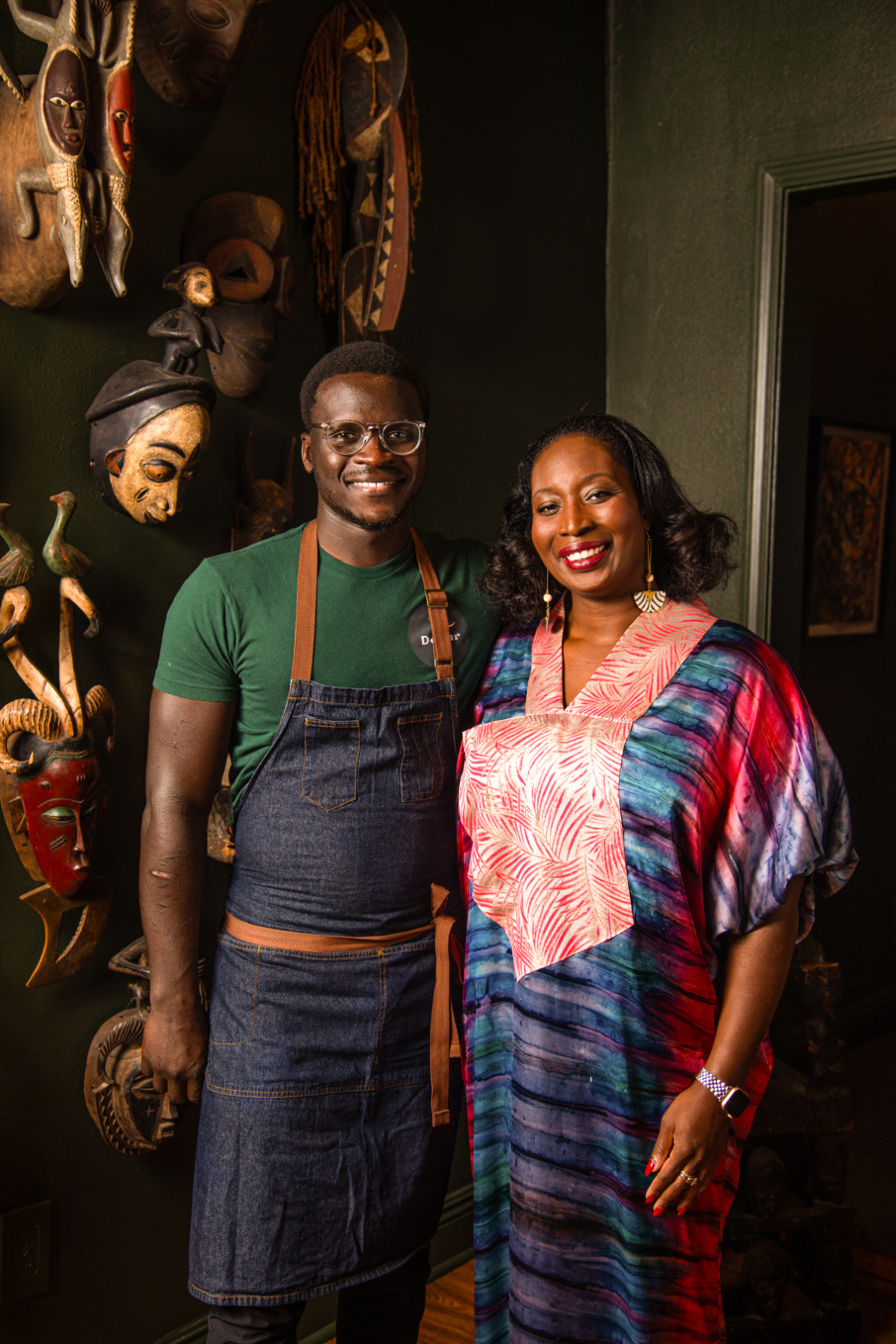
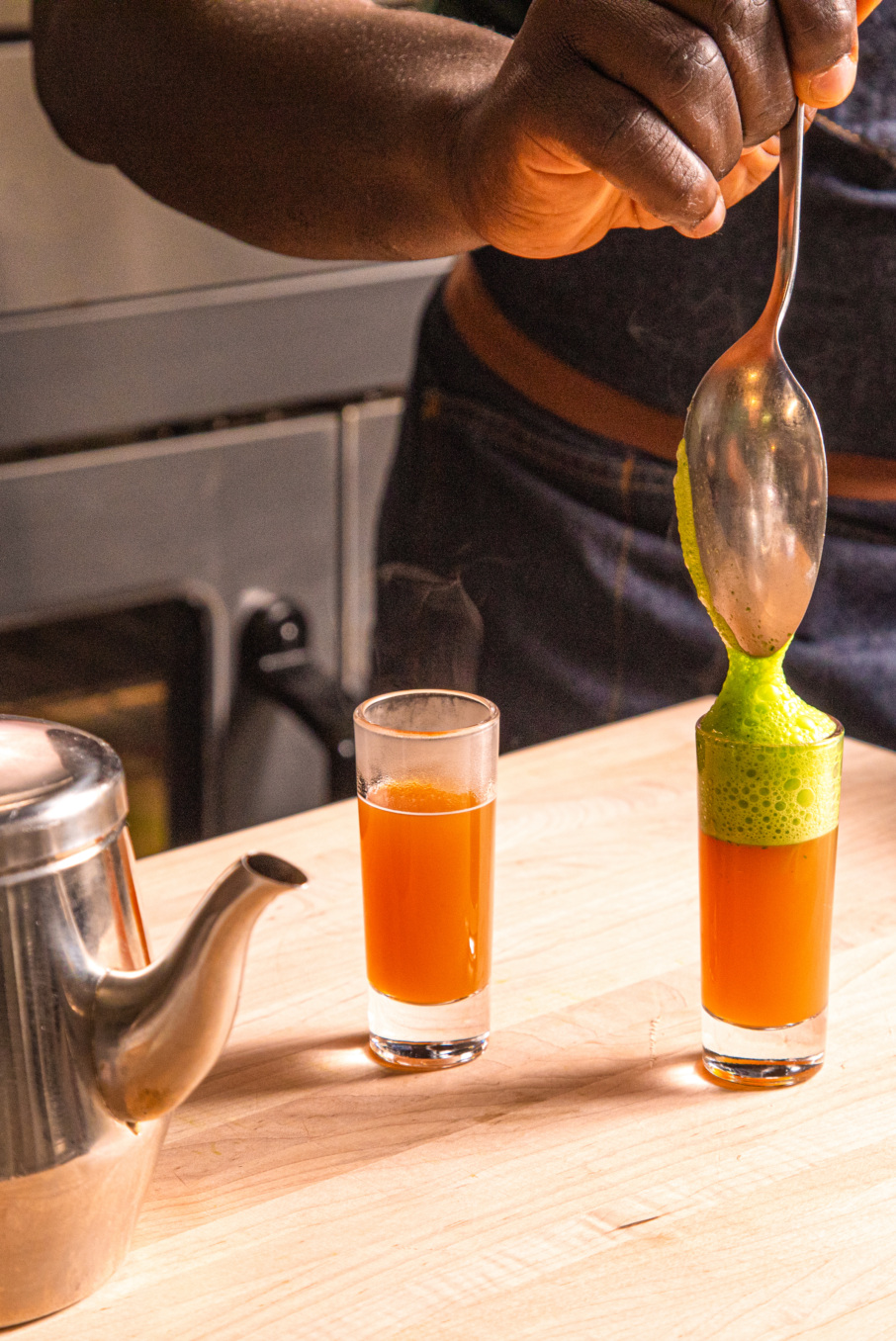
His food takes its cues from New Orleans, too. You can taste gumbo’s ancestral roots in a savory bowl of soupa konja — a West African “soup” with an okra base. Made with puffed rice and crab, it’s just the right dish to highlight the locally sourced seafood from balmy Gulf waters that makes cooking in New Orleans a dream for any chef.
Before Dakar, Mbaye spent years working at various fine dining restaurants, highlighting Japanese, Cuban, French, and Creole cuisine — but never African. Prior to his professional restaurant experience, his rich culinary education was passed down from the knowledge and hands of his parents in Senegal.
“As a young cook, I always thought that the best Senegalese food was from a mom and pop,” he says. With Dakar, he’s created a fine dining experience that highlights African hospitality as much as it does African flavors.
I caught up with Mbaye and Richardson to discuss how Dakar NOLA’s presence, and distinctive cuisine, fit into New Orleans’ multifaceted cultural fabric.
Stephen Satterfield: How does the richness in the culture and culinary heritage of New Orleans parallel that of Dakar, Senegal?
Effie Richardson: The beauty of New Orleans is that this is a place of cultural celebration. I haven’t lived in any city in this country that so freely celebrates cultures of the African, Asian, and Western European diaspora, all in the same place. People come here to celebrate, and they want to learn about food.
So, we’re in a great position, because we not only serve tasty food but also food that has ties to history in this area. People come here to learn the history of food and cocktails. So, all those things make New Orleans the perfect place for a restaurant like Dakar, where you’re learning about West African foods, specifically Senegalese food, and how it directly ties to the American South and New Orleans’ unfortunate history of slavery. You’re getting to taste history in a new way that you’ve never been exposed to.
I tell people, “You don’t realize you have West African food, because you’ve never been told that some of the foods you enjoy have origins in West Africa.”
There are many places in New Orleans where people can eat, but we truly believe what we’re doing is purely an experience.— Serigne Mbaye
So much intention went into the restaurant’s concept and the menu. There are multiple Gulf shrimp dishes. Why?
Serigne Mbaye: Anyone from New Orleans knows how much of a staple it is to have shrimp on any menu. I think of shrimp as a celebration as much as I think of fish as a celebration. Right now, our shrimpers are fighting a huge battle over the ability to sell their local shrimp, because many bigger companies are not buying them. They’re buying cheaper shrimp that’s not from the Gulf.
Food costs have been extremely expensive after COVID. Everything I do at Dakar is very intentional, and the fact that it’s small, I’m able to sustain it in many ways. So, even though food costs are rising, I don’t have to rely on shrimp that’s being sold from Thailand, Indonesia, or wherever. I truly highlight the Gulf shrimp. Everything that’s on the plate just inspires that shrimp to shine.
Richardson: Every time someone comes to Dakar, they will be served a shrimp-only course that highlights Gulf shrimp in some way — whether it’s sautéed with tamarind sauce, or he does it with a red pepper coulis or does a fonio and shrimp, which is kind of like a shrimp and grits.
So, just as Serigne said, the staple is there so that we can highlight just how bountiful the Gulf is with shrimp, and local people are the ones who are sourcing it for us. Almost 100% of the menu is local — from the produce to the Louisiana rice, and the seafood is local. I’m very proud that we truly source almost everything from the community except the flour.
Digestif: A Few of Serigne Mbaye’s Favorite Things
Dakar NOLA’s chef recounts some of his key inspirations.
PLAYLIST SELECTION
Orchestra Baobab. It’s a classic band that did a collaboration between Senegalese music and Cuban music — and it’s the perfect marriage of the food that I’m trying to do in that it belongs everywhere. Cubans can listen to Orchestra Baobab and feel just as at home as a Senegalese person. I love that.
THE RESTAURANT’S NAME
Dakar is where I’m from, and New Orleans is the place I’m in love with – and I want to cook the food that represents both. So, what is a better name than the two cities I’m in love with?
INGREDIENT HE CAN’T LIVE WITHOUT
I love working with produce and seafood at their absolute freshest; for seafood, on the day it has been caught. I love having access to a bountiful harvest because it gives me lots of options. Mother Nature does the job of providing us with ripe produce and I love to take advantage of it.
Your passion comes across in the dishes and atmosphere of the restaurant. When someone visits Dakar, how do you hope they feel afterward? What would you like for them to share with their friends?
Richardson: When someone leaves, I hope they are telling their friends that for two and a half hours, they were able to leave their cares at the door outside and be in a space that is full of love and positivity, that nurtured both their soul and their spirit, and that they will never forget a dining experience like that.
Mbaye: I want people to leave our restaurant and feel like they learned that West African cuisine also matters. They learn that we have something to offer. I hope they feel inspired to visit West Africa.
We also leave them with an experience they cannot get anywhere else in America. There are many places in New Orleans where people can eat, but we truly believe what we’re doing is purely an experience.
I’ve accumulated three decades of knowledge, starting with my parents early on when I was young, to spending a tremendous amount of time of my childhood in Senegal and coming back and working for all these great restaurants. So, at the end of it, I want people to leave and truly feel like, “Wow, that was something special.”
Produced By

Project Credits
- Writing Stephen Satterfield
- Editors Gabrielle Pharms and Allison Robicelli
- Photographer Kat Kimball
- Creative Director Celine Glasier
- Brand Liaison Marisa Dobson
- Writing Stephen Satterfield
- Editors Gabrielle Pharms and Allison Robicelli
- Photographer Kat Kimball
- Creative Director Celine Glasier
- Brand Liaison Marisa Dobson





